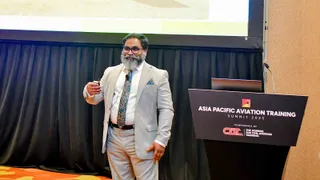PyeongChang's medical crew are being trained for the Winter Olympics
Contact Our Team
For more information about how Halldale can add value to your marketing and promotional campaigns or to discuss event exhibitor and sponsorship opportunities, contact our team to find out more
The Americas -
holly.foster@halldale.com
Rest of World -
jeremy@halldale.com
Every four years, athletes around the world prepare to compete in the Winter Olympics with the hopes of bringing home the gold for their country. Next year’s Winter Olympics will be hosted in PyeongChang, Korea. To prepare for the influx of athletes in this northeastern mountainous resort town, Korea has been training thousands of healthcare professionals to get ready to provide expert care at the games.
The Winter Olympics will be hosted from February 9-25 and more than 6,500 athletes from 95 different countries are expected to attend. Pyeongchang and its sub-host cities (Gangneung and Jeongseon) have prepared a dozen venues to stage the multiple sporting events taking place.
More than 2,300 doctors, nurses, physical therapists and other essential medical staff have been receiving training on foreign languages, sports psychology counseling as well as skiing in order to give the best care possible. Officials of the PyeongChang Organizing Committee for the 2018 Olympic and Paralympic Winter Games said that this training has been going on for the past few years. The medical personnel have also been trained to provide psychological counseling to athletes to help with the pressure players can experience in preparation of their events which they’ve trained the past four years for.
PyeongChang organizers have been working hard to train their medical personnel and have politely turned down requests by international organizations to provide foreign medical experts on events in which they have little experience in such as bob sleigh.
In an interview with Korea JoonAngDaily, Lee Young-hee, general director of the Wonju Severance Christian Hospital said, “We will begin a simulation training next month so we can better serve Olympians in an emergency. We’ve trained and educated the medical staff on a variety of fields, and I think they will serve a valuable asset for the Olympics to be held after PyeongChang.”
Source: Korea Joongang Daily


